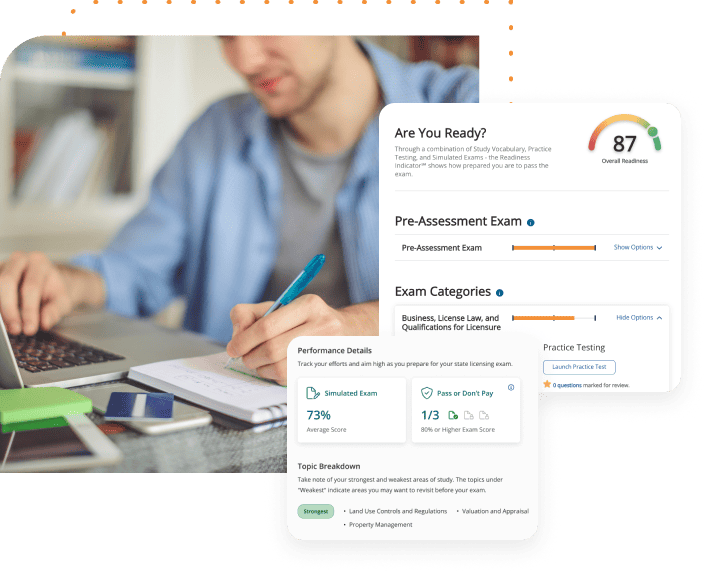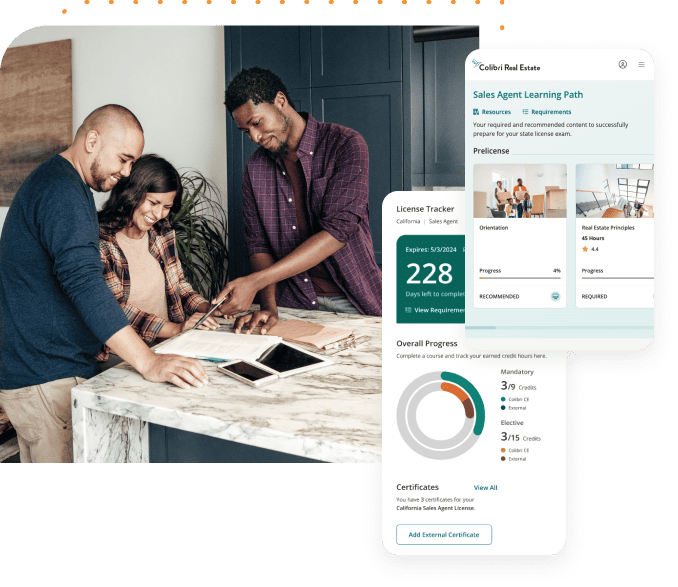The online real estate school committed to total flexibility
Complete real estate classes on your terms. We can help.

Your success starts with Colibri Real Estate.
Learn from local experts.
Pass your exam on the first try.
Enjoy flexible learning options.
Amplify your career confidence.
A leading real estate school for over 520,000 students. And counting.
We’ve proudly supported students with real estate courses, tools, and expertise that have set them up for success. Check out what our students have said about their real estate classes.
Your real estate career is calling. Let’s answer it together.
No matter your career stage, enroll in online real estate classes that fit your lifestyle and long-term goals.

Complete required pre-licensing with a trusted online real estate school.
Created by industry experts with experience in local markets, our real estate courses include real-world examples and interactive learning opportunities.
Self-paced online learning
Study at your own pace with online courses and, if you need support, local instructors are standing by.
- Meet your goals with our recommended path to success.
- Keep yourself on pace by setting weekly study goals.
- Track progress across your required coursework.
Instructor-led livestream classes
Attend virtual classes, taught by local instructors, from any device.
- Enjoy all the perks of a classroom, but from the comfort of home.
- Attend all scheduled livestream classes for the best course experience.
- Engage with instructors and peers in a virtual setting.
Pass the exam on your first attempt.
For total confidence on exam day, start comprehensive exam prep with our program, CompuCram®.
You can expect:
- A Readiness Indicator to track your progress with vocabulary, practice tests, and simulated exams
- A pre-assessment tool to gauge your knowledge of exam topics
- State-level prep content that caters to your specific real estate market
- Consistently high first-time pass rates


Post-licensing real estate courses
Certain states require new agents to complete this mandatory education — we can help. Take post-licensing courses with flexibility and ease.
Continuing education real estate courses
For easy, convenient license renewal, complete CE entirely online. Get what you need to fulfill state requirements, all in one place.

Colibri Real Estate is your dedicated real estate school and partner.
As a leading real estate school, we have over 25 years of experience providing courses for aspiring professionals, and while much has changed, our focus on student success remains. Learn more about Colibri Real Estate – and let us be part of your path to unlimited potential.